Contents
- 1 Sleep in Fitness: Rest to Rise: Harnessing Sleep’s Power for Enhanced Fitness and Performance
- 2 Understanding the Importance of Sleep:
- 3 Sleep and physical fitness:
- 4 Sleep’s Impact on Mental Fitness:
- 5 Sleep Duration and Quality for Optimal Fitness:
- 6 Tips for improving sleep quality:
- 7 Sleep and Weight Management:
- 8 The Connection Between Sleep and Exercise:
- 9 Sleep Disorders and Fitness:
Sleep in Fitness: Rest to Rise: Harnessing Sleep’s Power for Enhanced Fitness and Performance
Introduction:
The importance of sleep to one’s health and well-being cannot be overstated. Sleep has a major effect on fitness and exercise performance, in addition to its well-known benefits for mental and physical recuperation. In this piece, we’ll examine sleep’s role in the fitness setting and the ways in which it can improve your health and well-being.

Understanding the Importance of Sleep:
The Definition of Sleep:
Fitness greatly benefits from sleep’s important role. Sleep is an essential physiological process for restoring and repairing the body after strenuous activity. While general restorative mechanisms optimize fitness gains, growth hormone release peaks during deep sleep to promote muscle repair and growth. Athletes and fitness enthusiasts need regular, peaceful sleep if they are to maximize performance and effectively reach their fitness goals.
The Stages of Sleep:
The fitness benefits of sleep can be broken down into distinct stages. Sleep progresses through five distinct phases: NREM Stages 1-4, REM Sleep, and the wakeful state. Muscles are repaired and grown during NREM periods, making them crucial for improving one’s physical condition. Rapid Eye Movement (REM) sleep improves mental acuity, memory retention, and emotional stability, all of which contribute to peak physical performance. It is crucial for health and wellness to achieve a balanced sleep cycle in which sufficient time is spent in each stage.

Sleep Cycle and Circadian Rhythm:
The importance of sleep in fitness can only be fully comprehended by studying the sleep cycle and circadian rhythm. Each night, you go through a cycle of non-rapid eye movement (NREM) sleep and rapid eye movement (REM) sleep. This cycle is controlled by the circadian rhythm, which keeps it in sync with the body’s own internal clock. Consistent sleep and a healthy circadian rhythm improve the body’s ability to repair itself, secrete hormones, and generate energy, all of which have an effect on physical performance and well-being. Consistently sleeping and waking up at the same times each day is associated with improved fitness and enhanced athletic performance.
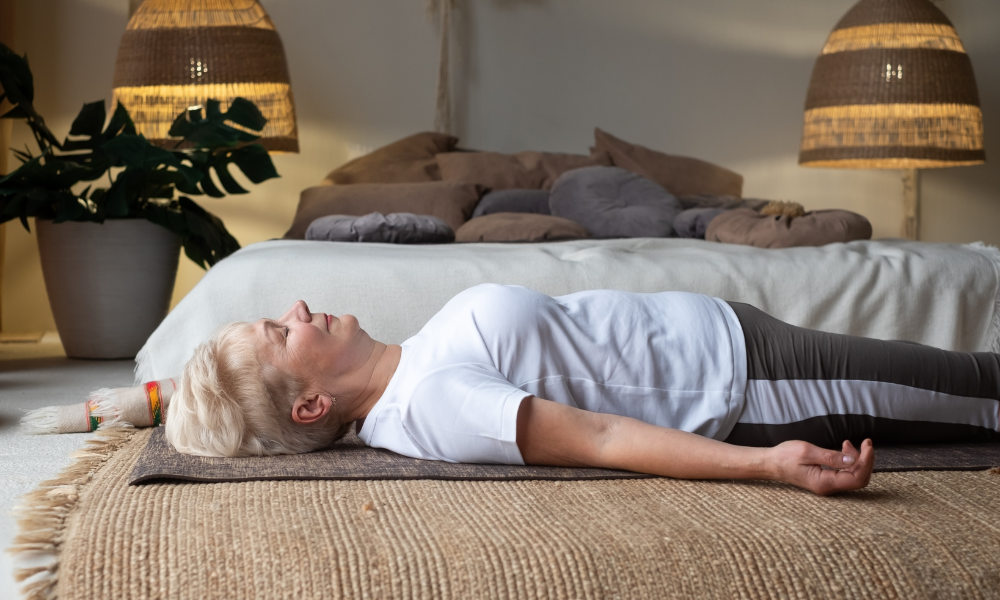
Sleep and physical fitness:
Muscle Recovery and Growth:
Muscle recovery and growth are closely linked to the role of sleep in fitness. Muscle repair and regeneration are aided by growth hormones, which are secreted by the body during deep sleep. Adequate sleep helps to heal by lowering stress and inflammation. In order to maximize muscular development and general physical performance, regular, restful sleep is crucial.
Hormonal Balance:
Hormonal balance is a crucial aspect of the role of sleep in fitness. The levels of hormones, including growth hormone, cortisol, and testosterone, are all modulated as you sleep. Muscle growth, suppression of catabolic processes, and improvement of metabolic functions are all aided by a good night’s sleep. Prioritizing excellent sleep can have a beneficial effect on an individual’s hormonal profile, leading to better exercise performance and general health.
Energy levels and performance:
An adequately rested body has more energy, focus, and mental clarity, which translates to better physical performance in training and competition. In addition, recharging your muscles and replenishing your glycogen stores while you sleep can provide you with the strength and stamina you need to succeed in your exercise goals. If you want to maximize your energy and perform at your absolute best, sleep must be a top priority as part of your workout program.
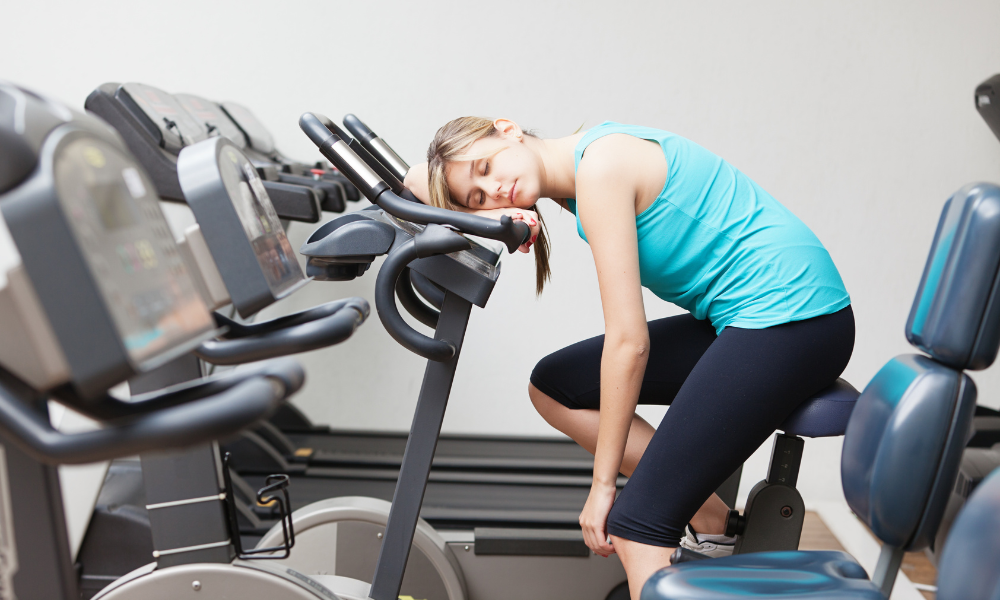
Sleep’s Impact on Mental Fitness:
Cognitive Function:
Sleep’s contribution to physical health is crucial to how well your brain works. The brain works to improve memory, processing speed, and problem-solving skills while we sleep. Good judgment and quick decision-making are crucial throughout training and workouts, and getting enough rest can help with all three. Better cognitive function is one of the many benefits of getting enough sleep, which also boosts mood and physical health.
Emotional Well-being:
Getting a good night’s sleep is essential for maintaining stable emotions throughout the day. Getting enough shut-eye can do wonders for your mental and emotional well-being, lowering your stress, anxiety, and anger levels. An individual’s emotional stability, motivation, and viewpoint on their fitness path can all benefit from regular, peaceful sleep.

Sleep Duration and Quality for Optimal Fitness:
Recommended sleep duration:
Most sleep experts agree that individuals need between 7 and 9 hours of sleep every night. Muscle repair, hormone stability, and improved mental acuity are just some of the many benefits of a good night’s sleep that can help you reach your fitness and health goals. When people prioritize getting enough sleep, they are better able to reap the advantages of their physical efforts and reach their goals.
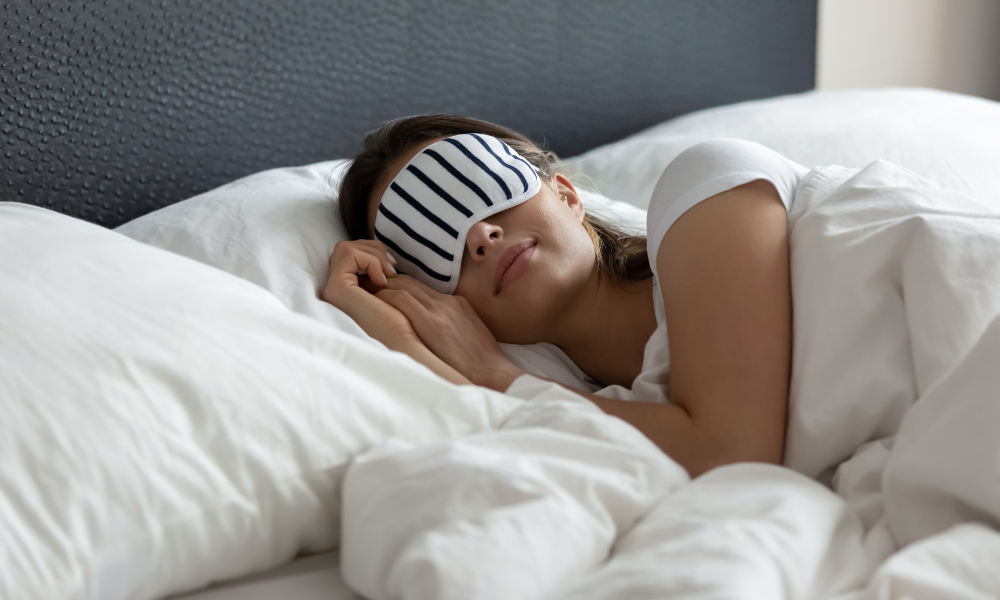
Tips for improving sleep quality:
Here are some tips to achieve better sleep:
💦 Set a regular bedtime and wake time and stick to it, especially on weekends, to help your body adjust its internal clock.
💦 Make a soothing nighttime ritual: reading, light stretching, or meditation are all great ways to help relax the mind and body before bed.
💦 To improve the quality of your sleep, make sure your bedroom is cold, dark, and quiet, and that you have a supportive mattress and pillows.
💦 Avoid using electronic devices like phones and computers for at least an hour before bedtime, as the blue light they emit can interfere with your body’s natural sleep-wake rhythm.
The quality of your sleep, your fitness, and your health will all benefit from implementing these suggestions.
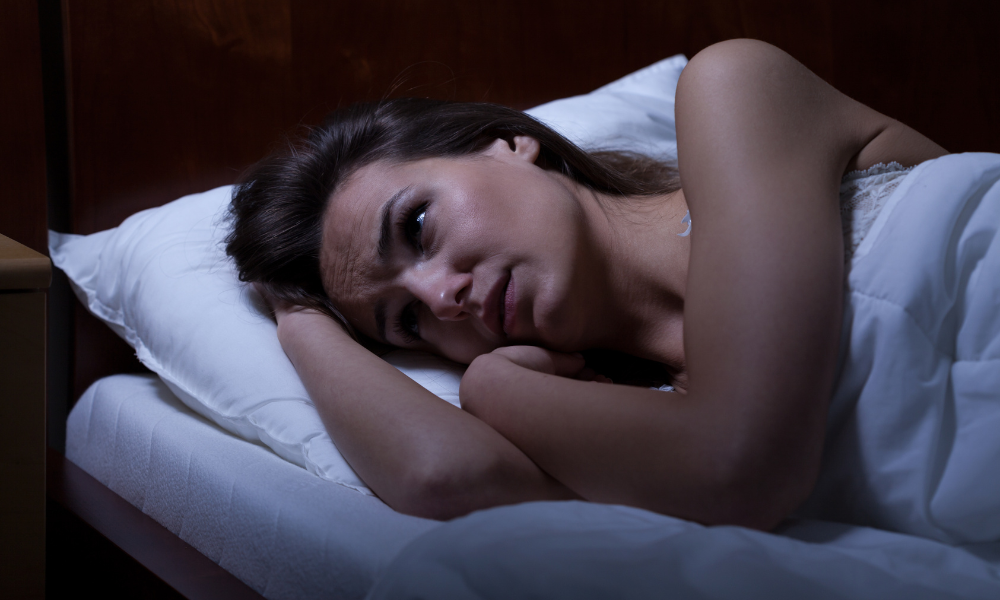
Sleep and Weight Management:
Leptin and Ghrelin Hormones:
Sleep and physical fitness are related in large part because of the hormones leptin and ghrelin. Appetite-controlling leptin, whereas hunger-inducing ghrelin has the opposite role. Lack of sleep can throw off the balance of these hormones, increasing ghrelin and decreasing leptin, both of which can lead to unhealthy eating habits and possible weight gain if not addressed. Supporting your efforts to manage your weight and improve your fitness will help you sleep better.
Sleep Deprivation and Appetite:
The importance of sleep in physical fitness can be influenced by the effects of sleep loss on hunger. Sleep deprivation causes an imbalance in appetite-regulating hormones. The hunger-stimulating hormone ghrelin rises, while the appetite-suppressing hormone leptin falls. Therefore, those who don’t get enough shut-eye may find it harder to resist the allure of high-calorie, unhealthy foods, which could lead to binge eating and other fitness-impairing consequences. A well-balanced diet and effective weight control in a fitness program are impossible to achieve without prioritizing adequate sleep.
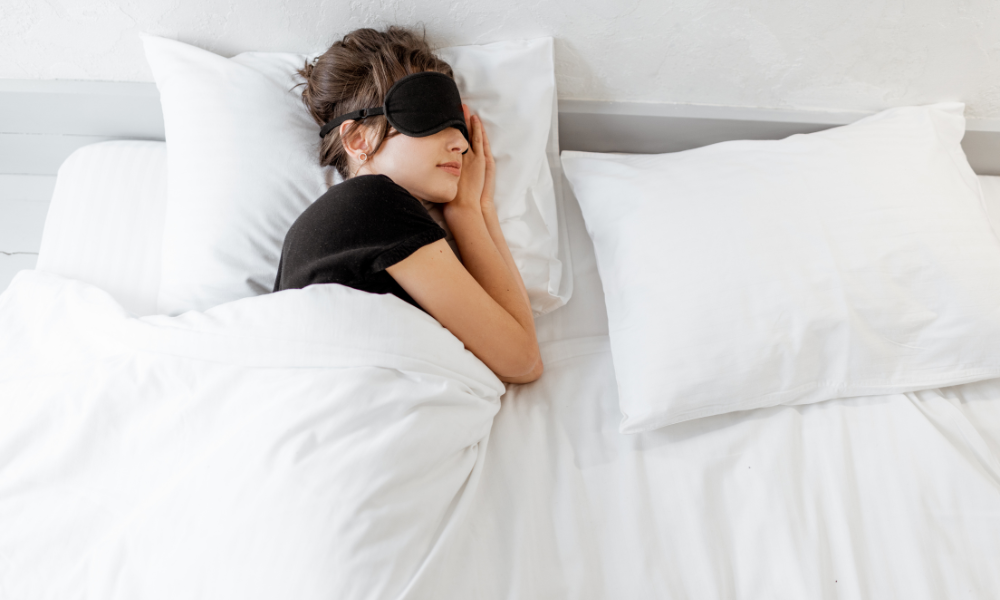
The Connection Between Sleep and Exercise:
Pre-Workout Sleep:
In order to perform at your physical and mental best during your workout, it is crucial that you have a good night’s sleep the night before. Exercise performance can be enhanced by giving the body sufficient time to recover, repair muscles, and replenish energy storage. Good sleep also improves attention, coordination, and response time, which in turn boosts performance and lessens the likelihood of damage during physical activity.
Post-Workout Sleep:
The importance of getting enough rest after an exercise cannot be overstated. Rest is essential for the body’s post-workout recovery and restoration of muscles, energy storage, and tissue growth. The body’s natural recuperation processes are maximized after an exercise by getting enough sleep, leading to greater muscular development and less discomfort. Hormone balance and immune system strength are two other areas that benefit from this. If you want to get the most out of your workouts and actually reach your fitness objectives, you need to make getting enough sleep a top priority after each session.
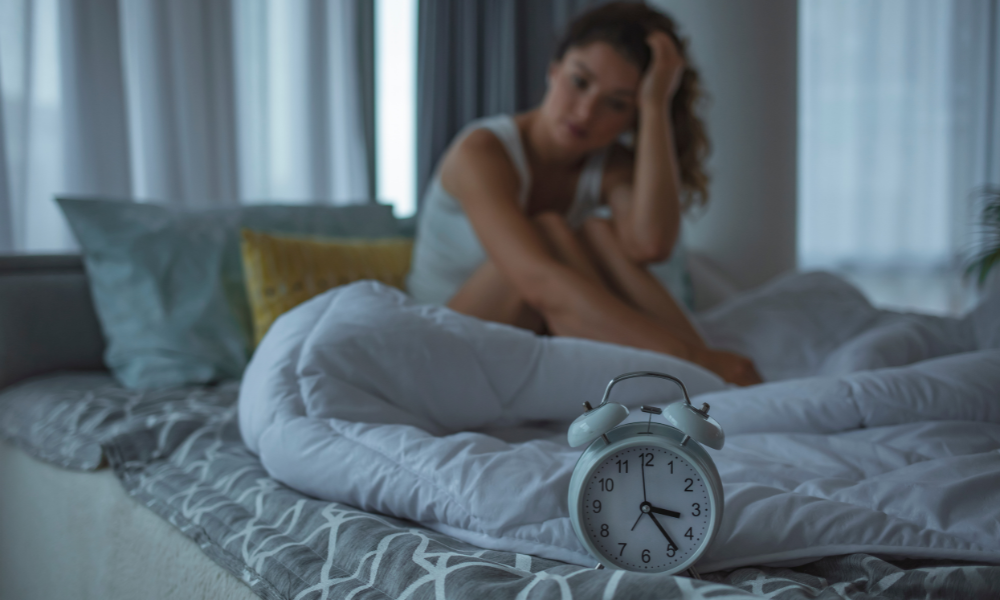
Sleep Disorders and Fitness:
Sleep Apnea:
Fatigue from sleep apnea, a disease characterized by pauses in breathing while sleeping, can make it difficult for a person to participate in physically demanding activities.
Insomnia:
The difficulty of falling or staying asleep, known as insomnia, has been linked to decreased exercise performance and general fitness.

Conclusion and Final Thoughts
To summarize, rest is something other than a daily practice; it’s the foundation of a fruitful wellness venture. Quality rest upholds muscle recuperation, balances chemicals, and renews energy levels, shaping a strong starting point for further developed wellness and execution. Even the most effective nutrition and training plans can fail if they don’t get enough sleep. The unsung hero that links all aspects of health and fitness is sleep.
Besides, rest assumes a significant role in managing temperament and mental capability, which directly influence your inspiration and concentration. A very refreshed mind is more ready, versatile, and prepared to handle testing exercises. By focusing on rest, you improve your actual presentation as well as develop a more uplifting perspective on your wellness process, prompting more prominent consistency and long-term achievement.
The most important takeaway is simple: sleep should be your top priority if you want to reach your fitness goals and stay in good health. From setting a steady rest timetable to making a quiet sleep time normal, each step you take towards better rest is a stage towards upgraded wellness and, in general, prosperity. Start today, make a commitment to getting enough sleep, and let sleep be the secret weapon that takes your fitness journey to new heights.








